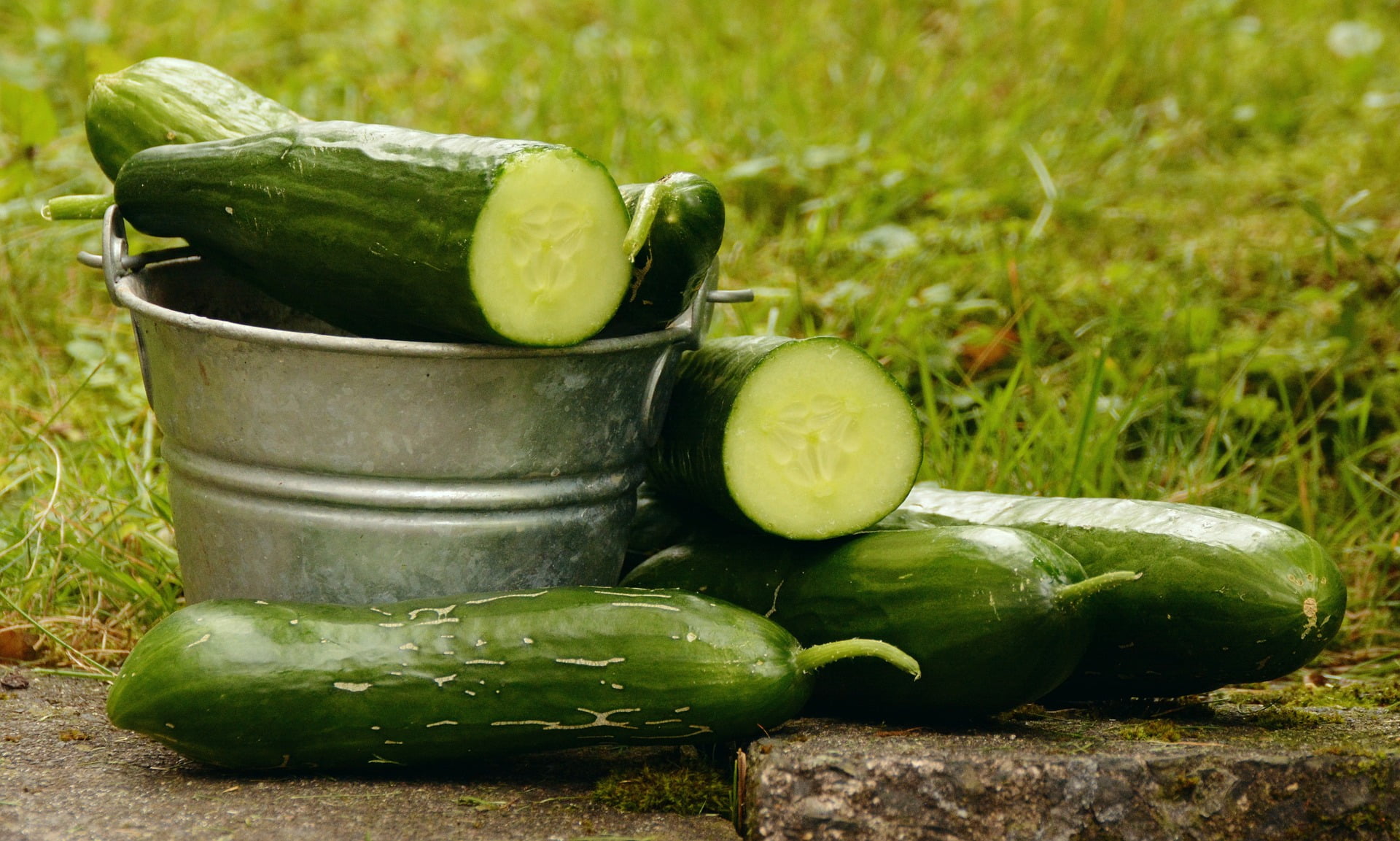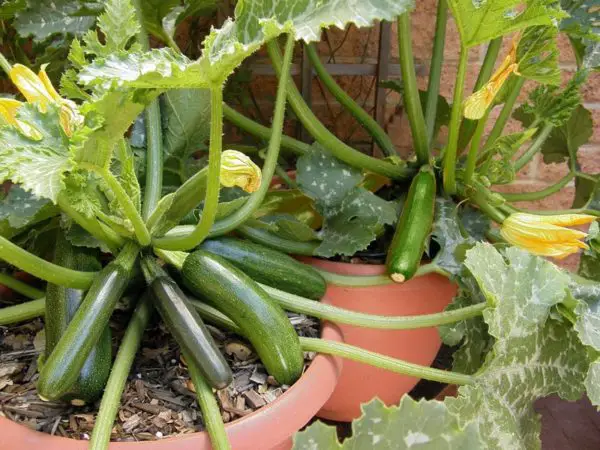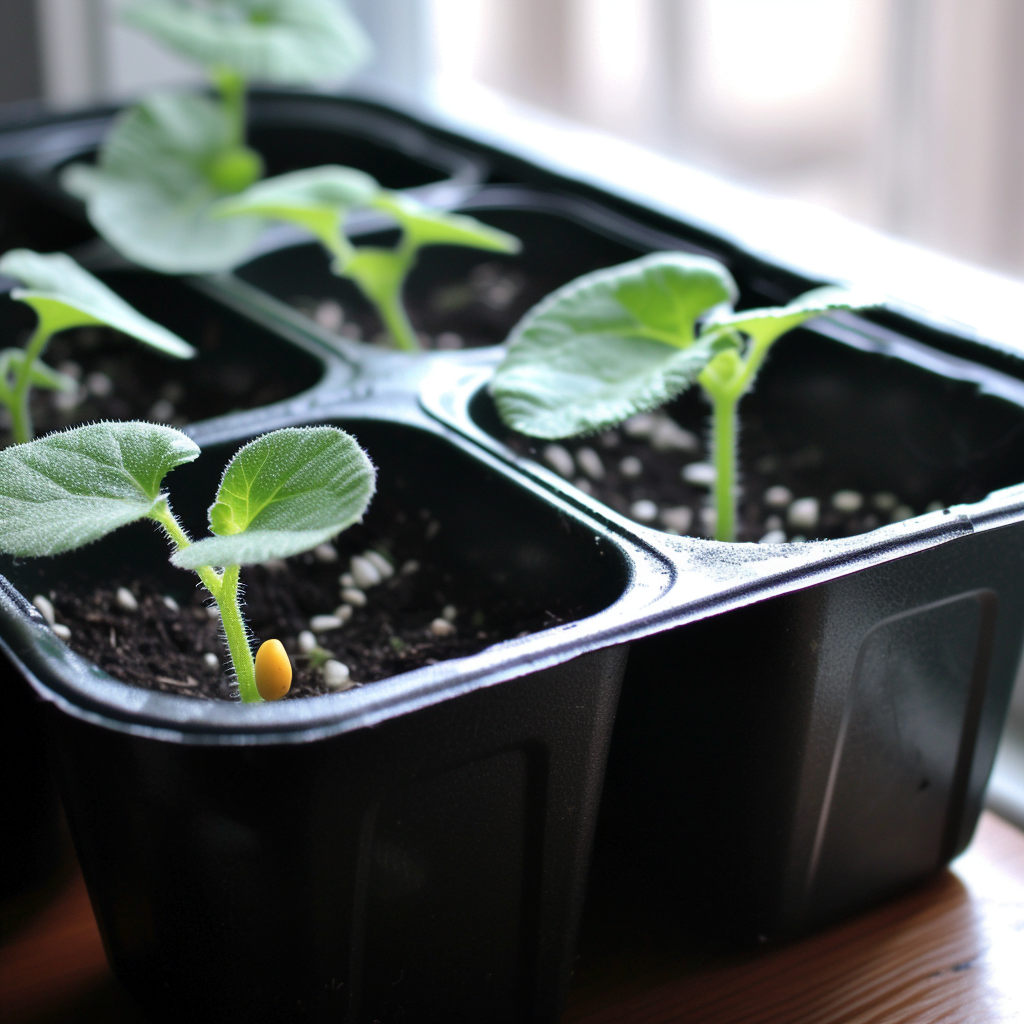So you’re curious about the bitterness of zucchini? Well, you’re not alone. Many have wondered why this versatile vegetable can sometimes pack a surprising bitter punch. In this article `why is zucchini bitter`, we’ll explore the factors that contribute to zucchini’s bitterness, from its genetic makeup to environmental conditions. By the end, you’ll have a better understanding of this intriguing taste profile and be armed with tips on how to handle it in your culinary adventures. Hang tight, we’re about to uncover the secrets behind this bitter phenomenon.
The Characteristics of Zucchini
Appearance of Zucchini
Zucchini, also known as courgette, is a versatile summer squash that belongs to the cucurbit family. It typically has a cylindrical shape, although some varieties may be rounder or shaped like a club. The skin of zucchini ranges in color from dark green to a yellowish hue, and it often has a smooth, glossy texture. With a length of around 6 to 8 inches, zucchini is an ideal size for culinary use.
Taste of Zucchini
When it comes to taste, zucchini offers a mild and slightly sweet flavor. This gentle taste allows it to blend well with other ingredients and makes it a versatile ingredient in various dishes. Zucchini has a tender and slightly crisp texture when cooked properly, adding a delightful crunch to salads or stir-fries. However, zucchini can sometimes turn bitter, which can impact its overall flavor profile.
Culinary Uses of Zucchini
Zucchini is a highly versatile vegetable that can be used in a multitude of culinary creations. Its mild flavor makes it the perfect addition to both savory and sweet dishes. It can be sautéed, grilled, roasted, or even spiralized to create zucchini noodles, commonly known as “zoodles.” Zucchini also makes a delicious addition to soups, stews, casseroles, and stir-fries. Furthermore, it can be used in baking to add moisture and nutrition to bread, muffins, and cakes.
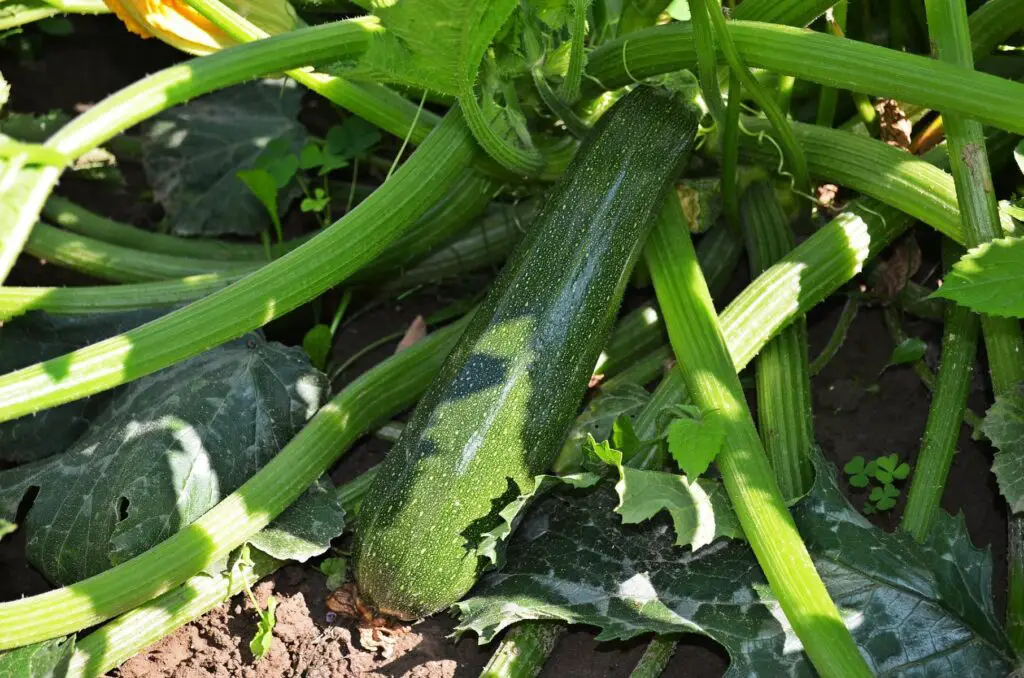
Understanding Zucchini Bitterness
Causes of Bitterness in Zucchini
The bitterness in zucchini stems from various factors, including genetic and environmental conditions. Understanding these causes can help in minimizing bitterness and ensuring a pleasant culinary experience.
Genetic Factors
Some zucchini varieties naturally contain compounds called cucurbitacins, which are responsible for the bitter taste. These bitter compounds are most concentrated in the skin, seeds, and flesh near the seeds. While modern breeding efforts have reduced the presence of cucurbitacins in most commercial zucchini varieties, the bitter taste can still occur under certain conditions.
Environmental Factors
Environmental conditions can play a significant role in intensifying the bitterness of zucchini. Factors such as temperature, sunlight exposure, soil conditions, and pesticide use can contribute to the bitterness of the vegetable.
Growing Conditions
Inadequate growing conditions, such as poor soil fertility, inconsistent watering, or lack of proper nutrients, can lead to the development of a bitter taste in zucchini. Additionally, overcrowding of plants or improper spacing can also contribute to bitterness.
Harvesting Time
The time of harvesting zucchini is crucial in determining its bitterness. Leaving zucchinis on the plant for too long can result in overripening, causing an increased bitterness. It is essential to harvest zucchini at the right stage of maturity to avoid excessive bitterness.
Storage and Quality
Improper storage practices can accelerate the accumulation of bitter compounds in zucchini. Exposure to excessive moisture or long periods of refrigeration can contribute to bitter flavors. Maintaining proper quality standards during storage is therefore crucial to avoid bitterness in stored zucchini.
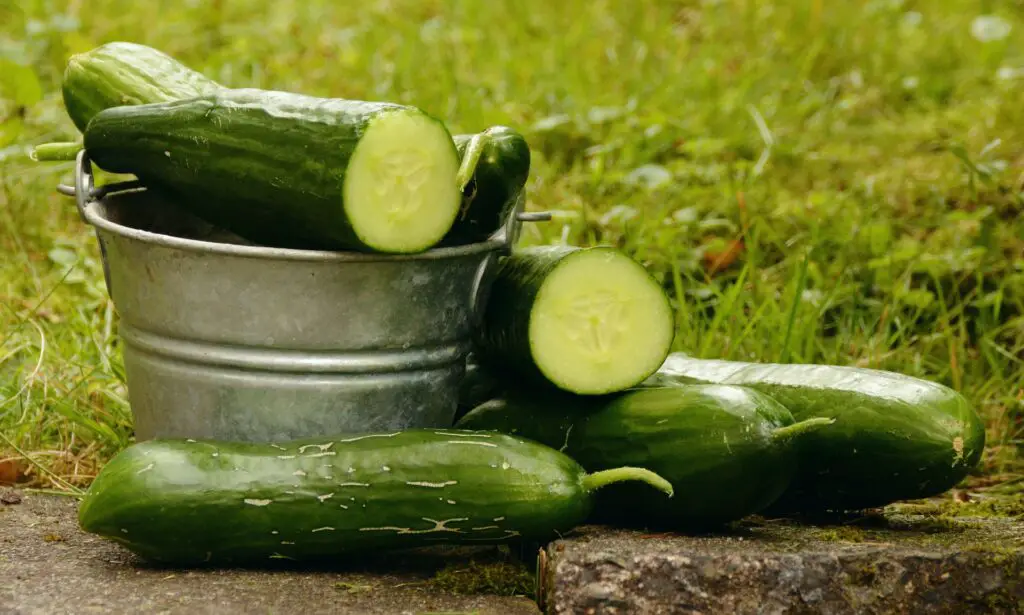
Genetic Factors Influencing Zucchini Bitterness
Cucurbitacins and Bitterness
Cucurbitacins are a group of natural compounds found in zucchini that give them their bitter taste. These compounds act as a defense mechanism in the wild, deterring pests from consuming the plant. However, in cultivated varieties, high levels of cucurbitacins can lead to an undesirable bitterness.
Types of Cucurbitacins
There are several types of cucurbitacins present in zucchini, with cucurbitacin C being the most bitter. Other compounds include cucurbitacin B, cucurbitacin D, and cucurbitacin E. The presence and concentration of these compounds can vary among zucchini varieties.
Breeding Efforts to Reduce Bitterness
Through selective breeding, efforts have been made to reduce the bitterness in zucchini. Breeders focus on developing cultivars with low levels of cucurbitacins, ensuring a milder taste. This allows consumers to enjoy zucchini without the unpleasant bitterness commonly associated with wild varieties.
Environmental Factors Contributing to Zucchini Bitterness
Temperature and Bitterness
High temperatures can aggravate the bitterness of zucchini. When exposed to intense heat, enzymatic reactions occur within the vegetable, increasing the production of bitter compounds. It is essential to provide optimal temperature conditions during cultivation and avoid subjecting zucchini to extreme heat.
Sunlight and Bitterness
While zucchini plants require sunlight for optimal growth, excessive exposure to direct sunlight can impact the flavor of the vegetable. Intense sunlight can lead to heat stress in zucchini, triggering the production of bitter compounds. Providing partial shade during the hottest parts of the day can help prevent excessive bitterness.
Soil Conditions and Bitterness
The composition and fertility of the soil can affect the bitterness of zucchini. Poor soil conditions, such as nutrient deficiencies or imbalances, can contribute to the production of bitter compounds. Ensuring a well-balanced and nutrient-rich soil through proper fertilization can minimize the bitterness in zucchini.
Pesticides and Bitterness
Pesticides, if used in excessive amounts or incorrectly, can contribute to the bitterness of zucchini. The presence of pesticide residues on the surface of the vegetable can interact with its natural compounds, intensifying the bitter taste. It is crucial to follow proper pesticide application guidelines to avoid bitterness caused by pesticide use.
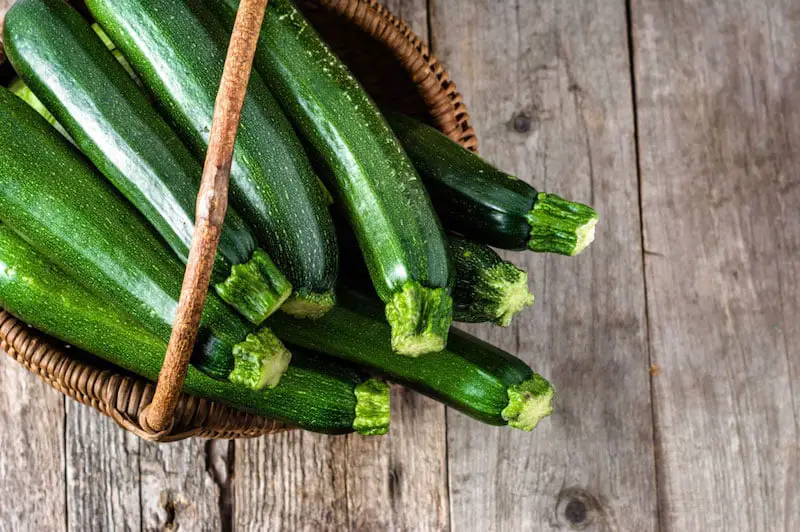
Optimal Growing Conditions for Zucchini
Temperature and Sunlight Requirements
Zucchini plants thrive in warm climates, with an optimal temperature range between 70°F and 90°F (21°C to 32°C). They require at least 6 to 8 hours of direct sunlight daily to ensure proper growth. Providing a sunny location with well-draining soil is essential for cultivating zucchini successfully.
Soil Requirements
Zucchini prefers well-draining soil with a pH level between 6 and 7. Amending the soil with organic matter, such as compost or well-rotted manure, can improve its fertility and drainage. Adequate soil moisture is necessary, but waterlogged soil should be avoided to prevent root rot and bitterness.
Watering Techniques
Proper watering techniques are crucial in preventing bitterness and ensuring healthy zucchini plants. Zucchini plants require consistent moisture, but overwatering must be avoided. Regular watering at the base of the plant, especially during hot and dry periods, is recommended. Mulching around the base of the plants can help retain moisture and regulate soil temperature.
Harvesting Zucchini to Prevent Bitterness
Determining the Right Time to Harvest
To prevent bitterness, it is crucial to harvest zucchini at the right stage of maturity. Zucchinis are typically ready for harvest around 6 to 8 inches in length. They should be firm and have glossy skin. Overripe zucchinis often develop a bitter taste, so it is important to harvest them promptly.
Avoiding Overripe Zucchini
Overripe zucchinis are more likely to exhibit bitterness. Signs of overripening include a dull skin, excessive softness, and enlarged seeds. By regularly monitoring the zucchini plants and promptly removing overripe fruits, you can prevent bitterness from developing and ensure a better flavor.
Proper Harvesting Techniques
To harvest zucchini, use a sharp knife or gardening shears to cut the fruit from the plant. Carefully sever the stem, ensuring minimal damage to the remaining plant. By practicing proper harvesting techniques, you reduce the risk of introducing bitterness to the zucchini.
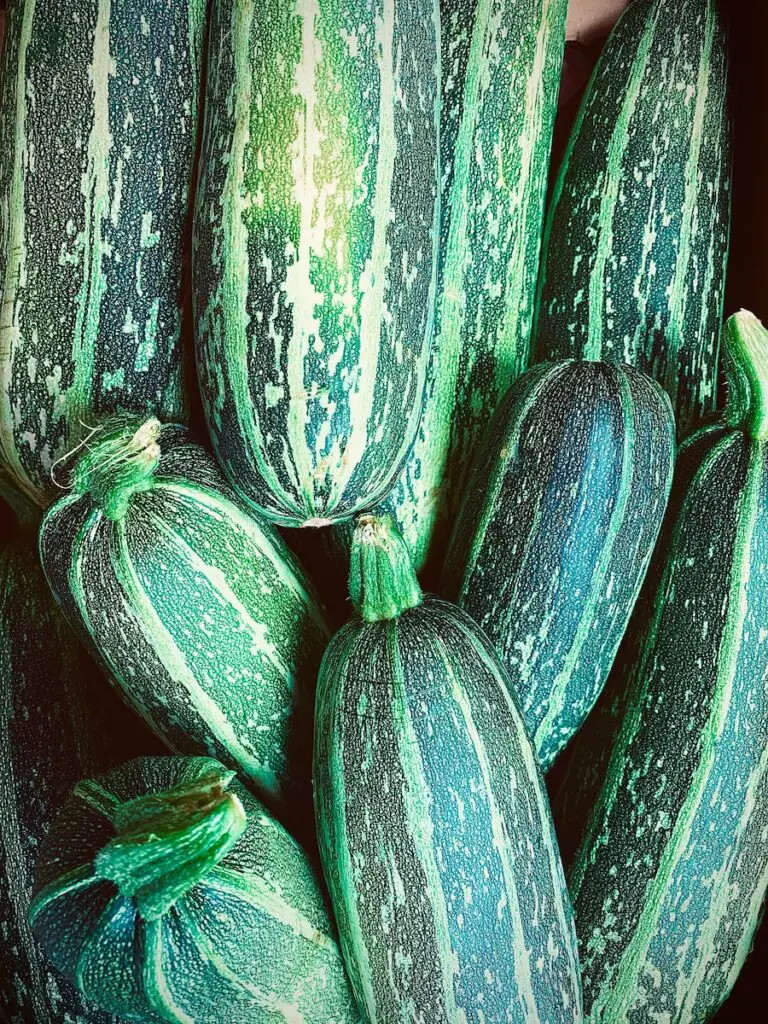
Storage Methods to Maintain Zucchini Quality
Refrigeration and Bitterness
Refrigeration can help maintain the freshness and quality of zucchini but may contribute to bitterness if not done correctly. To store zucchini in the refrigerator, place it in a perforated plastic bag to allow airflow and prevent excessive moisture buildup. However, prolonged refrigeration can concentrate bitter compounds, so it is best to use refrigerated zucchini within a week of storage.
Freezing Zucchini
Freezing zucchini is a great way to preserve the vegetable and extend its shelf life. Before freezing, blanch the zucchini by briefly immersing it in boiling water and then immediately transferring it to an ice bath. Once blanched, slice or chop the zucchini and store it in airtight containers or freezer bags. Properly frozen zucchini can maintain its quality for up to a year.
Canning Zucchini
Canning is another preservation method that allows you to enjoy zucchini throughout the year. Carefully clean the zucchini and cut it into desired shapes. Fill sterilized canning jars with the zucchini, leaving appropriate headspace. Prepare a brine solution or use a pressure canner according to a reliable recipe. Process the jars according to the recommended canning guidelines for safe storage and maximum retention of flavor.
Drying Zucchini
Drying zucchini is an excellent storage option that concentrates its flavors without increasing bitterness. To dry zucchini, slice it into thin rounds or julienne strips and spread them on a drying rack or dehydrator tray. Place the rack or tray in a well-ventilated and low-humidity area. Once the zucchini is thoroughly dried, store it in airtight containers or ziplock bags. Dried zucchini can last for several months if stored properly.
Reducing Zucchini Bitterness in Culinary Applications
Blanching and Bitterness Reduction
Blanching zucchini in boiling water for a short duration can help reduce its bitterness. This process minimizes the concentration of bitter compounds and results in a milder flavor. After blanching, zucchini can be used in various dishes, such as salads, stir-fries, or soups, with a reduced risk of bitterness.
Marinating and Bitterness Reduction
Marinating zucchini in acidic ingredients like vinegar or lemon juice can help reduce its bitter taste. The acidic marinade helps neutralize the bitter compounds, resulting in a more enjoyable culinary experience. Combine the marinated zucchini with other flavors and ingredients to create vibrant and flavorful dishes.
Cooking Methods to Minimize Bitterness
Certain cooking methods can help minimize the bitterness of zucchini. Sautéing zucchini in olive oil over medium heat can impart a mild caramelization, enhancing its natural sweetness and reducing bitterness. Grilling zucchini can also add a smoky flavor and depth while lessening the chances of encountering bitterness.
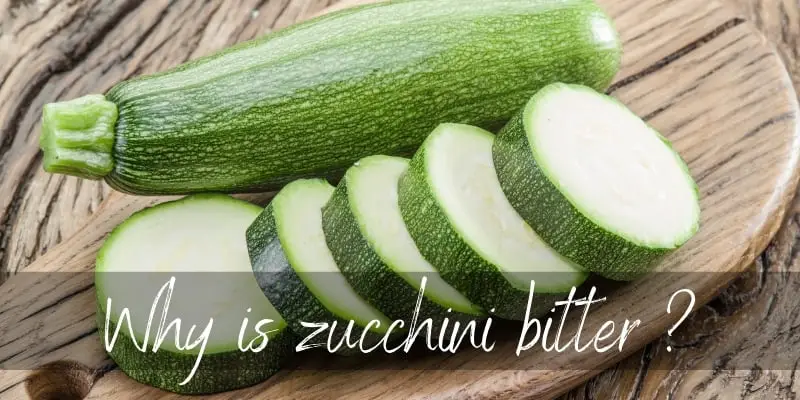
Benefits and Drawbacks of Zucchini Bitterness
Health Benefits of Bitterness
Despite the potential bitterness, zucchini retains its nutritional value. It is packed with beneficial nutrients like vitamin C, potassium, folate, and dietary fiber. Bitter compounds found in zucchini, such as cucurbitacins, possess anti-inflammatory and antioxidant properties, offering potential health benefits.
Enhancing Culinary Experience
In certain culinary applications, bitterness can contribute to a unique and complex flavor profile. Some individuals appreciate the bitter taste in zucchini, as it adds depth and character to dishes. The bitterness can serve as a delightful contrast to sweeter or richer ingredients in recipes.
Deterring Pests and Animals
The bitterness of zucchini acts as a natural defense mechanism against pests and animals. In the wild, zucchini plants produce high levels of bitter compounds to deter herbivores from consuming them. This natural bitterness can be advantageous in gardens where protection from pests is a concern.
Negative Effects on Palatability
For many individuals, excessive bitterness in zucchini can be an unpalatable and unpleasant experience. The intense bitterness can overpower the other flavors in a dish and disrupt the overall taste. This can be a drawback when aiming to create a balanced and enjoyable culinary experience.
Overcoming Bitterness in Zucchini
Selecting Bitterness-Resistant Varieties
Choosing zucchini varieties with reduced bitterness is an effective way to overcome the potential issue. Look for varieties that have been specifically bred for their mild flavor and reduced cucurbitacin content. These varieties will provide a more enjoyable zucchini experience, even for those sensitive to bitter tastes.
Proper Cultivation Techniques
Providing optimal growing conditions and maintaining good cultivation practices can minimize bitterness in zucchini. Ensure the right balance of nutrients in the soil, monitor water levels, and control pests and diseases effectively. By promoting healthy growth and reducing stress, you can lessen the likelihood of developing bitterness in zucchini.
Post-Harvest Bitterness Reduction
If you encounter a bitter zucchini, there are steps you can take to reduce the bitterness after harvest. One method is to slice the zucchini and sprinkle it with salt, allowing it to rest for a few minutes. Rinse the salt off before using the zucchini, as this can help draw out some of the bitter compounds. Additionally, cooking methods like roasting or baking can help mask bitterness by enhancing the natural sweetness of the zucchini.
By understanding the various factors influencing zucchini bitterness and implementing the appropriate techniques, you can enjoy the delectable flavors and versatile culinary uses of this beloved summer squash without encountering any undesirable bitterness.
